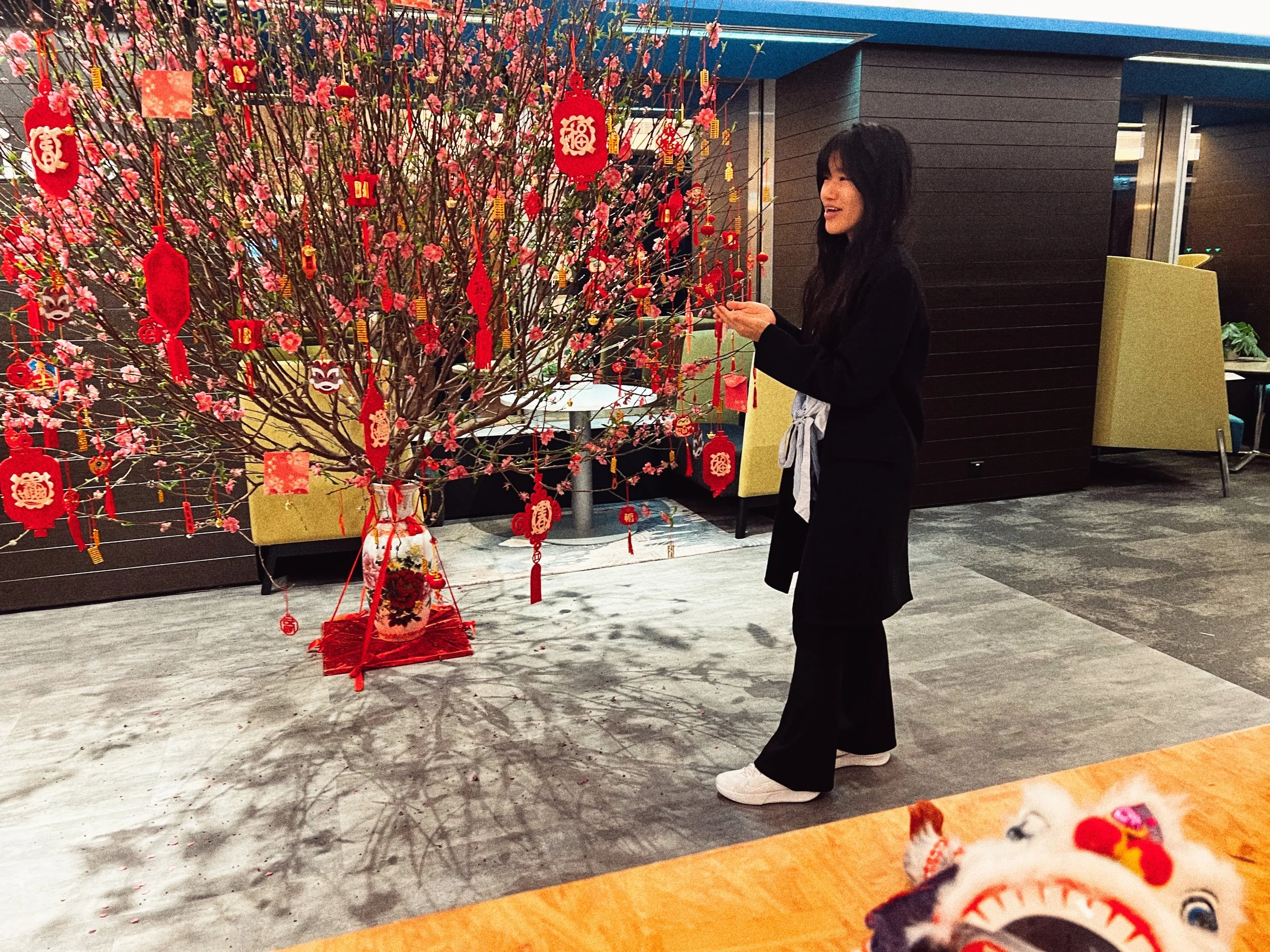5 reasons Why Chinese people (openly) love money so much
If you've been following my journey, you know that I've grown up with a love-hate relationship with money because of the conflictual money messages I've received between my Chinese heritage and my French upbringing.
There's a common stereotype that Chinese people aren't shy about loving money. It's not uncommon for them to ask strangers about their earnings, and you might even see a lot of them proudly carrying stacks of cash.
On the other hand, in the West, especially in France, there's this taboo surrounding money. People don't openly discuss their finances, and saying you actually like money will raise some eyebrows. It's as if money is seen as the root of all evil, and if someone happens to be well-off, there's often suspicion that they've obtained their wealth through questionable means.
As we celebrate the Lunar New Year, it's the perfect time to challenge these stereotypes and appreciate the diverse ways different cultures view money.
Here I'm sharing 5 reasons why I believe Chinese people love money so much (and why it's less taboo than in the West).
Chinese New Year is a time of celebration and renewal.
By expressing wishes for prosperity, they are hoping for a year filled with financial success, happiness, and overall well-being for themselves and their loved ones.
Today's agenda:
- Monetary Legacy
- From Survival to Success
- Religion Influences
- Rice Farm legacy
- Breaking the Taboo
- Conclusion
- Monetary Legacy
Monetary Legacy
China, with its rich history, holds the distinction of being the first civilisation to create a monetary system, dating back thousands of years.
Think of a pioneer in the realm of monetary systems.
More recently, in the 1970s, China's went through significant economic reforms. The shift from a communist-type of economy to a market-oriented one created opportunities for wealth accumulation.
This economic transformation has fostered a culture that values material prosperity and the pursuit of financial goals.
From Survival to Success
In the span of a single generation, China underwent a remarkable transition from the devastating Great Famine of the 1960s, which claimed the lives of 30 million people, to a state of prosperity.
This dramatic shift has had a profound impact on the modern Chinese perspective on wealth.
The rapid growth of China's middle class has also contributed to the emphasis on money and material possessions. As more individuals attain higher incomes and improved living standards, there is a desire to display wealth through luxury goods, real estate, and other status symbols.
Religion influences
While a majority of Chinese people identify as irreligious, religious practices and ancient superstitions still hold influence.
Taoism and Buddhism, deeply ingrained in Chinese culture, have concepts that link material wealth to spirituality.
The idea of karma in Buddhism suggests that being born into a wealthy family is a result of good deeds in a past life.
The God of Wealth is openly worshipped for financial blessings - specially during Chinese New Year, where red enveloppes with money are given during this period.
Farming Heritage
In his book, Malcolm Gladwell, a New York Times bestselling author, explains how Chinese people are renowned for their strong work ethic, and it can be traced back to their deep-rooted connection with rice farming.
Hardship = Success.
Maintaining and cultivating rice paddies required an incredible amount of labour, with farmers dedicating up to 3,000 hours per year to their work (i.e. 56 hours/week).
The nature of the work historically protected them from exploitation by local authorities, ensuring they received fair compensation for their efforts.
This agricultural heritage has ingrained a profound appreciation for hard work in Chinese culture.
Breaking the Taboo
Taboo reasons are more like cause-and-effect relationships than standalone reasons.
The more we avoid discussing certain topics, the more they become taboo.
Let's rewind on how taboos are initially formed.
Clash with social norms >> Social Punishment >> Taboo
Taboos originate from cultural experiences.
They form when certain conversations clash with social norms.
When someone's actions deviate from societal expectations, it affects others in the community, and they may face punishment for their behaviour.
This social punishment plays a crucial role in enforcing taboos.
For instance, imagine being at a party and casually asking someone how much money they make. In China, they might answer without hesitation, while in France, you'd likely be met with shock and judgment, with disapproving glances eventually leading to people walking away.
Conclusion
While the culture of valuing money in China has its merits, there are also downsides.
Those who struggle financially or don't conform to traditional expectations may face stigma and encounter even more taboos compared to Western societies.
For example, imagine a Chinese person who isn't good at math (another cliché), they are usually made fun of.
Also, things are changing! China undergoes rapid social and economic changes, the perspectives on money and its place in society are shifting slowly with the new generation.
As we celebrate the Chinese New Year and enter the Year of the Dragon, let me extend warm wishes for joy, health, and prosperity.
It's the perfect opportunity to cultivate our financial confidence and challenge the taboos surrounding money!
Sophie
PS - Let me know what you think about my 5 reasons why Chinese people (openly) love money, would love to hear if you agree/disagree!


